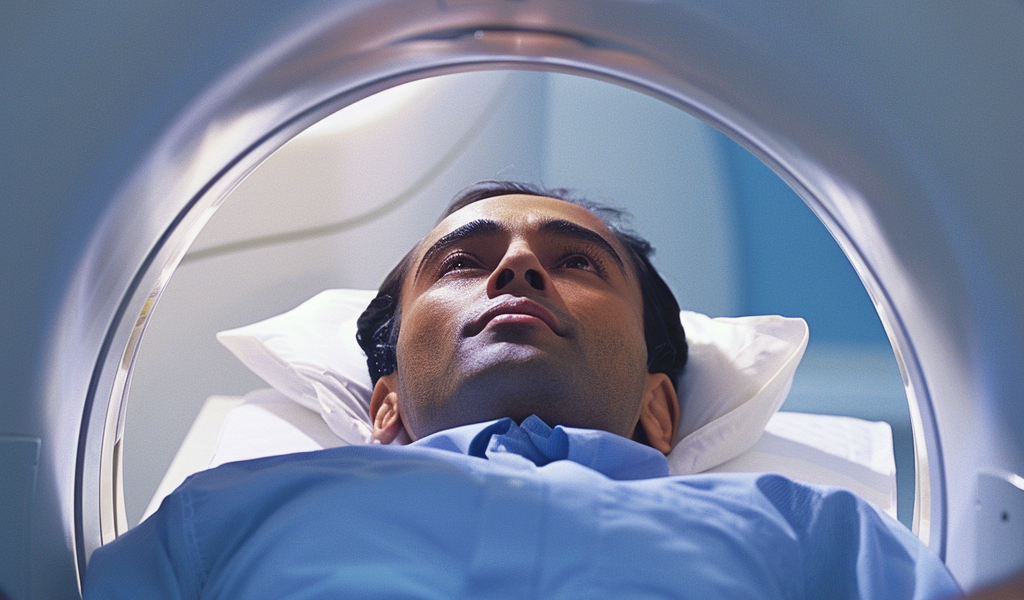The latest research in the field of prostate cancer diagnosis has revealed a groundbreaking finding that could revolutionize the way MRI scans are conducted. A UK trial, known as Prime, has shown that reducing the duration of MRI scans for prostate cancer by a third could make them more affordable and accessible without compromising accuracy.
The current standard practice for diagnosing suspected prostate cancer involves a three-stage MRI scan, with the patient receiving a contrast dye injection during the third stage to enhance the scan images. However, the Prime trial, which involved 555 patients from 22 hospitals in 12 countries, found that dropping the third stage of the scan did not hinder the detection of prostate cancers. In fact, the shorter two-stage scan was able to diagnose 29% of prostate cancers, which is on par with the detection rate of the three-stage scans.
Lead radiologist on the trial, Dr. Clare Allen, presented the results at the European Association of Urology conference in Paris, emphasizing that the absence of a contrast scan did not compromise the ability to detect significant prostate cancers. She highlighted that the shorter scans would not only be quicker but also almost 50% cheaper, making them more accessible to a larger number of men.
The implications of this research are significant, considering that the UK sees approximately 52,300 new prostate cancer cases each year. The reduced cost and time of the two-stage MRI scans could potentially enable more men to undergo the necessary diagnostic procedures, ultimately leading to earlier detection and treatment.
Matthew Hobbs, director of research at Prostate Cancer UK, which co-funded the trial, expressed optimism about the results, stating that the findings would allow more men to benefit from quicker, more affordable scans that do not require an injection. This development has the potential to have a meaningful impact on the accessibility of prostate cancer diagnostic services, potentially improving outcomes for patients.





